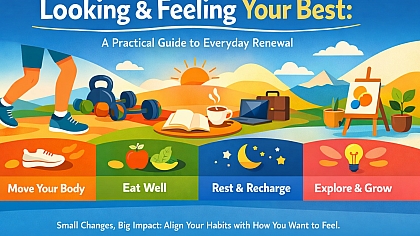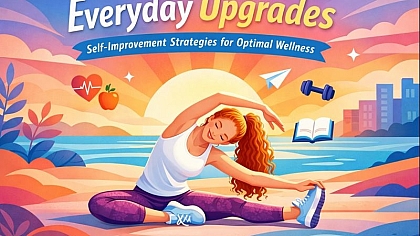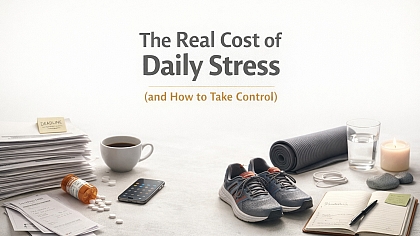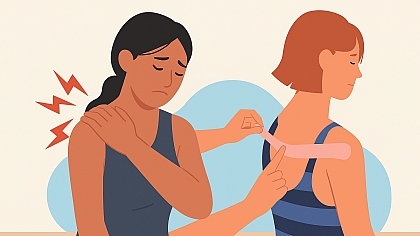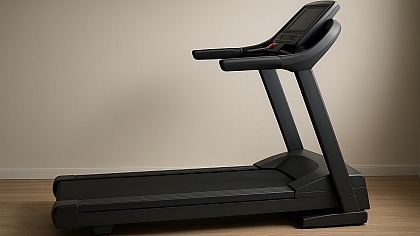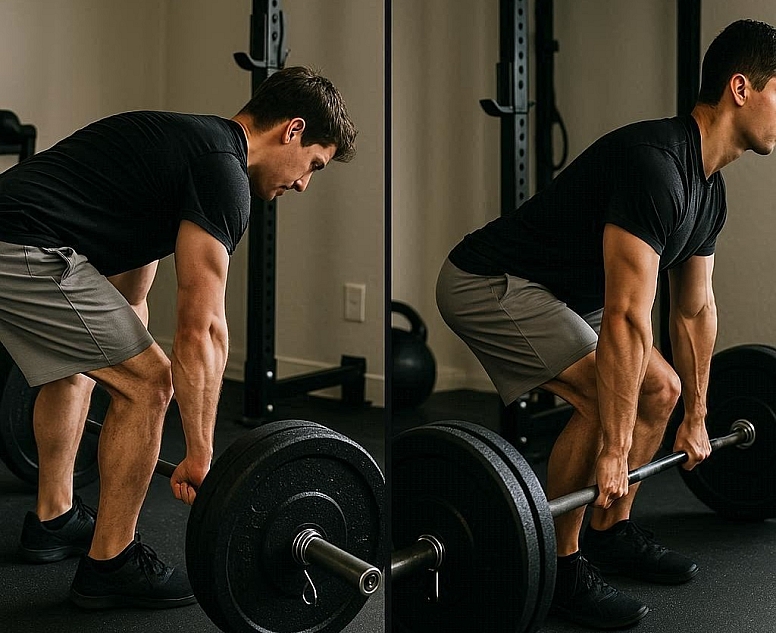
6 Common Fitness Mistakes Beginners Make (And How to Fix Them)
Start Strong, Avoid the Pitfalls
Beginning a new fitness routine is exciting. But common, easy-to-make mistakes can derail progress, lead to injury, and zap motivation. The good news is that these errors are simple to fix once you know what to look for. Avoiding them from the start sets you up for long-term success and makes the process more enjoyable.
Mistake 1: Doing Too Much, Too Soon
The Problem: Overwhelming enthusiasm leads to a two-hour gym session or an intense run. The next day, you are so sore you can barely move. This cycle of extreme effort followed by forced rest is unsustainable and often leads to quitting.
The Fix: Embrace Progressive Overload. Start far easier than you think you need to. The goal of your first few weeks is to build the habit, not set records.
Action Step: For strength training, begin with just the barbell or very light dumbbells. Focus on learning the movement. For cardio, start with a brisk 20-minute walk, not a 5K run. Add a little more time or weight each week.
Mistake 2: Copying Advanced Lifters
The Problem: Mimicking the complex, heavy lifts of experienced athletes without mastering the basics first almost guarantees poor form, which significantly increases the risk of injury—a key point emphasized in thespoonathletic fitness tips for safe and sustainable training.
The Fix: Master the Fundamental Movement Patterns. Before adding weight, your body must learn the correct movement pathways.
Action Step: Prioritize form over weight every time. Learn these basic patterns with bodyweight or very light loads first:
Mistake 3: Skipping the Warm-Up and Cool-Down
The Problem: Jumping straight into exercise with cold, stiff muscles and finishing abruptly without stretching. This increases the chance of pulls, strains, and next-day soreness.
The Fix: Make 10 Minutes Non-Negotiable.
- Warm-Up (5 mins): Do dynamic movements that increase your heart rate and mobility. Think of leg swings, arm circles, cat-cow stretches, and light jogging in place.
- Cool-Down (5 mins): Perform static stretches, holding each for 20-30 seconds. Focus on the muscles you just worked. This helps with recovery and flexibility.
Mistake 4: Focusing Only on "Spot Reduction"
The Problem: Doing hundreds of crunches to lose belly fat or endless inner thigh exercises to tone legs. Spot reduction is a myth; you cannot choose where your body loses fat from.
The Fix: Prioritize Full-Body Workouts and Nutrition. Fat loss happens throughout the entire body in response to a calorie deficit.
Action Step: Build a routine that works all your major muscle groups 2-3 times per week. Combine this with moderate cardio and, most importantly, a healthy diet. The exercises will build muscle everywhere, and the fat loss will eventually reveal it.
Mistake 5: Ignoring Proper Nutrition and Hydration
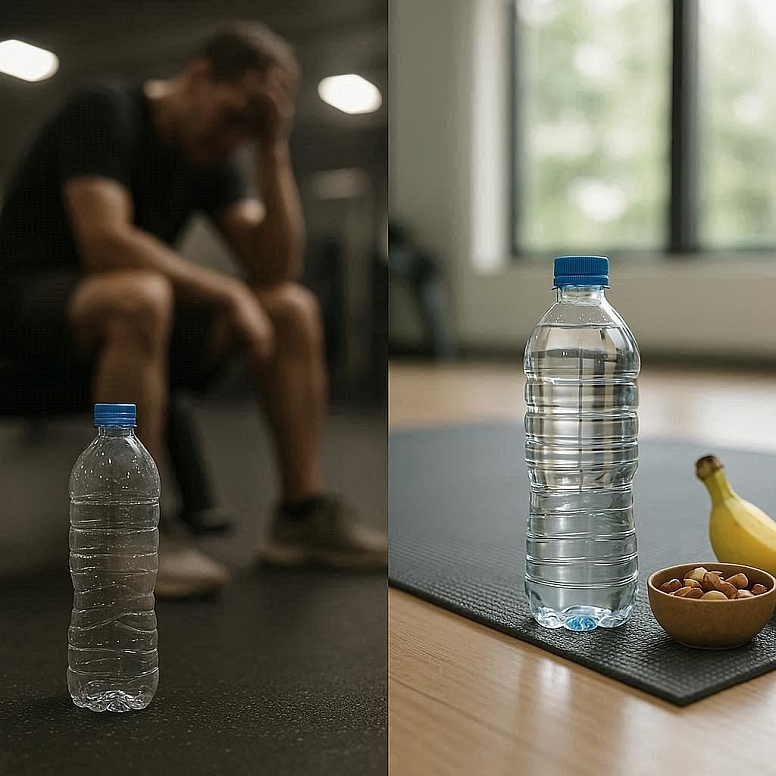
The Problem: Thinking exercise alone is enough, while neglecting fuel and recovery. You cannot out-train a poor diet. Working out dehydrated or under-fueled leads to poor performance and fatigue.
The Fix: View Food as Fuel and Water as Essential.
- Nutrition: Eat a balanced meal with protein and carbohydrates 1-2 hours before a workout. Afterwards, have a snack or meal with protein to aid muscle repair.
- Hydration: Drink water throughout the day. A simple guide is to check your urine color; aim for light yellow.
Mistake 6: Comparing Your Progress to Others
The Problem: Measuring your week one against someone else's year five. This comparison is demotivating and ignores your unique journey, genetics, and starting point.
The Fix: Compare You to You. Your only benchmark is your past self.
Action Step: Track small victories. Could you do one more push-up than last week? Did you run for 30 seconds longer? Did you feel more energetic? These are the metrics that truly matter.
A Simple Blueprint for Success
The path to fitness is a marathon, not a sprint. By starting slow, prioritizing form, and listening to your body, you build a sustainable foundation. Consistency with these basic principles will always beat short bursts of intense, poorly planned effort.
The goal isn't to be perfect today, but to be better than you were yesterday.
Frequently Asked Questions
How often should a beginner work out? Aim for 2-3 days per week of full-body strength training with a day of rest in between. Add 1-2 days of light cardio. This allows for adequate recovery, which is when your body gets stronger.
I'm sore after every workout. Is that normal? Some muscle soreness (Delayed Onset Muscle Soreness or DOMS) is normal, especially at the beginning. Severe pain that limits movement is not. If you're extremely sore, take an extra rest day or do very light active recovery like walking.
Do I need to take supplements? No. Beginners do not need supplements. Focus on getting quality nutrients from whole foods first—lean protein, vegetables, fruits, and whole grains. Supplements live up to their name; they supplement an already good diet.
What if I miss a week? Do not quit. Life happens. Simply return to your schedule with your next planned workout. Fitness is about long-term habits, not perfection.

